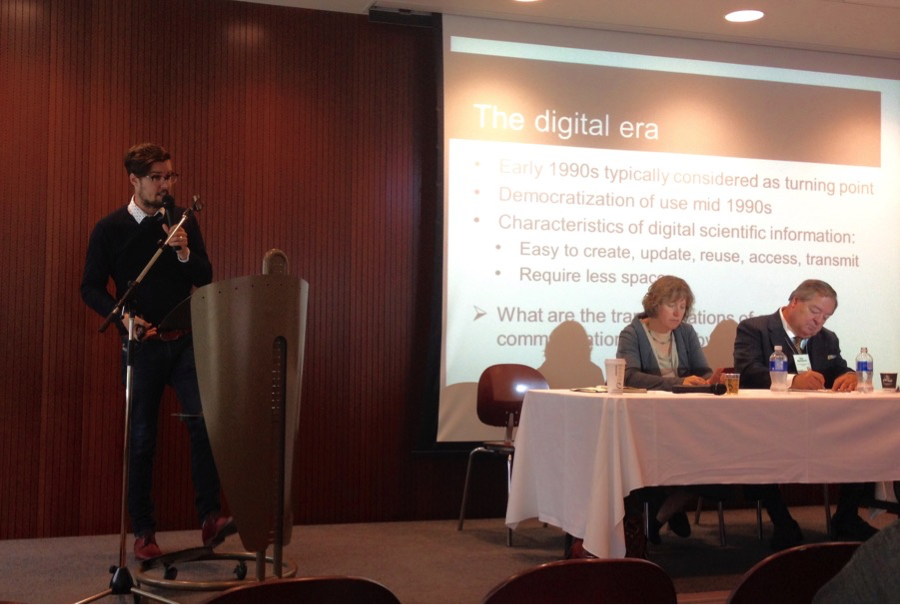The digital age is rapidly changing how scholars produce, share, analyze and preserve ideas. At Monday’s interdisciplinary symposium at Congress 2015, the changing nature of scholarly research with technology was the topic of discussion.
One of the event’s hot topics was the preservation of the past, facilitated by Fabien Lengellé, Corporate Secretary of Library and Archives Canada (LAC). Lengellé outlined the recent digital projects undertaken by the LAC in efforts to relate to the Digital Humanities domain. Lengellé’s presentation sparked some lively questioning about the choice of which archival materials to digitize and the difficulty of prioritizing certain records. In response, Lengellé said that of LAC’s holdings, public interest is shown to be highest in genealogical queries and records of the First World War. So LAC’s more successful projects, such as the digitization of the 1921 Census and Out of the Trenches, a First World War open link data project, were developed based on public demand.
On sharing ideas in the digital world, Vincent Larivière of the University of Montreal (pictured) presented on the transformations of scholarly communication in the digital age. Larivière traced the changing role of the scholarly journal over time and the implications of open access to scholarly materials in the digital age. Larivière asserted the importance of journals today and in the future, even as platforms like Twitter are becoming trusted sources of relevant information.
Susan Brown of the University of Guelph introduced the concept of ecotones between the scholarly and archival communities. An ecotone, being the transitional area between two or more distinct ecological communities, is a liminal space between disciplines with great potential for collaboration. By merging disciplines and their content into an open data environment, Brown said archives and libraries could become centres of innovation.
Chad Gaffield of the University of Ottawa gave closing remarks, urging a change from 19th and 20th century practices, which no longer apply in the digital world: “We need to get serious about the potential of our digital age and the challenges of moving forward. We need to think big and embrace the challenge.”

